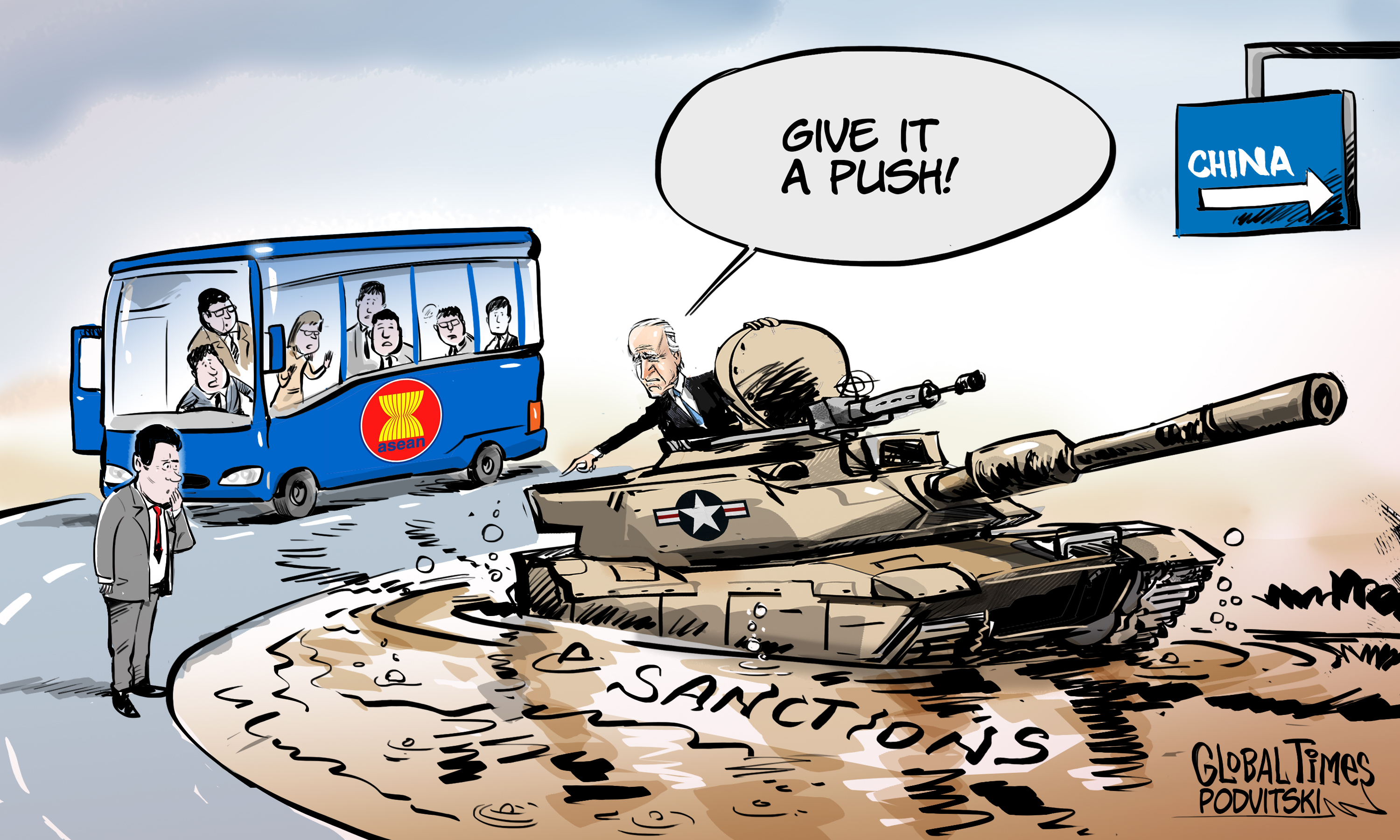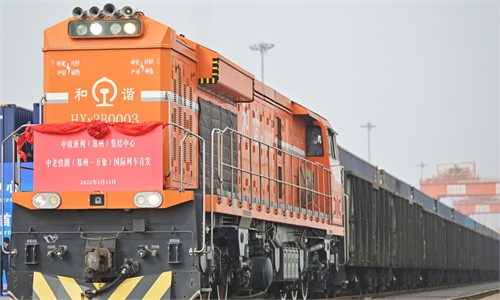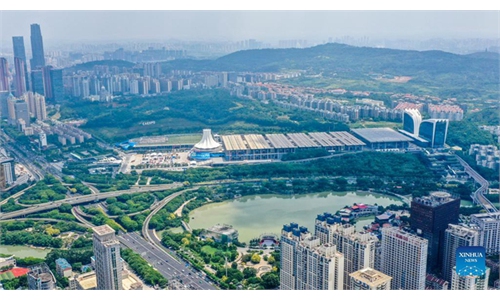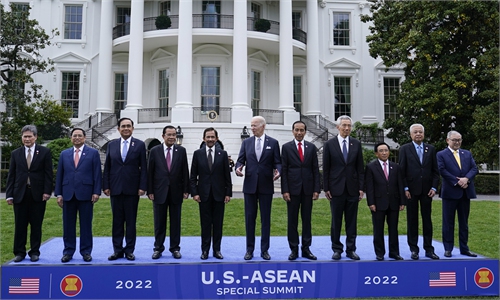
US pulling ASEAN into the quagmire of confronting China Cartoon: Vitaly Podvitsky
The once-postponed special US-ASEAN Special Summit was held in Washington this week. During his speech, US President Joe Biden said, "Our relationship with you [ASEAN members] is the future, in the coming years and decades." US Vice President Kamala Harris added that "together we will guard against threats to international rules and norms." The US side did not publicly mention China, but the public opinion generally believes that when the US engages in multilateral diplomacy nowadays, it often makes China the "absent protagonist."
However, ASEAN countries as a whole remained cautious about the summit. Cambodian Prime Minister Samdech Techo Hun Sen, made it clear that "We don't have to choose between the US and China." In his speech in Washington, Vietnamese Prime Minister Pham Minh Chinh stressed that "between independence and dependence, our choice is always independence … Between negotiation and confrontation, we choose negotiation. Between dialogue and conflict, we choose dialogue. And between peace and war, we choose peace. Between cooperation and competition, we choose cooperation." On his part, Indonesian President Joko Widodo said, "Indonesia expects this special summit will produce a partnership that can contribute to peace, stability, and regional welfare." Singapore Prime Minister Lee Hsien Loong welcomed proposed Indo-Pacific Economic Framework with the US, but also said he hopes it will be "inclusive."
The caution of ASEAN countries is reasonable. This year marks the 45th anniversary of ASEAN-US Dialogue Relations. From whatever perspective, the relationship between the two sides can hardly be described as "ideal." In March, the US announced it would launch an investigation into alleged circumvention of duties for solar panels imported into the US from Cambodia, Malaysia, Thailand and Vietnam, alleging the modules of panels might come from China and it caused shockwaves to relevant industries.
Cambodia, Indonesia and Thailand are due to host three important leaders' meetings in the Southeast Asia region later this year, according to a joint statement released by the three countries in early May. The statement suggested the meetings are "for all participating countries/economies," which, in real sense, rejected the unreasonable demands of the US and the West, which piled pressure to the three countries, to isolate Russia.
The US-ASEAN Special Summit had also faced bumps on the road before it took place. The US kept changing the dates proposed by ASEAN, even unilaterally announced to hold it in March, which triggered dissatisfaction from ASEAN members.
At this summit, the US pledged $150 million in investment to the ASEAN, which became one of a few substantive "results" of the summit. But it has been mocked by the international public opinion, as the House passed a bill that would provide $40 billion in aid to Ukraine. And the $60 million of the total $150 million will be used to assist US partners in promoting maritime defense. Washington talks about how it wants to help ASEAN members develop clean energy, promote education and fight the pandemic, but in fact it still focuses on "security" to "counter China's influence." No wonder a Singaporean official said to Americans - You tend to approach the region with a single focus, which is security, but Asians live by trade.
Before the summit, Kurt Campbell, the top White House official on Asia, said on Wednesday that the US "does not want to descend Southeast Asia or Asia into a new Cold War." He said the US has a "desire to compete peacefully" in an effective way. It is not hard to understand such diplomatic rhetoric. If the "peace" mentioned by Washington is to ensure its "absolute advantage" by pushing others into abyss, while "effective" means the ultimate goal of containing China, such a move won't be welcomed no matter how it is disguised. ASEAN members have been through regional wars and conflicts. They deeply know how precious peace and development is. Most ASEAN members are experienced and wise to avoid becoming the pawns in the games between super powers.
In US' strategic circle, there has been a so-called concept that ASEAN is economically dependent on China while relying on the US for security. It must be pointed out that China and ASEAN are mutual partners - it has nothing to do with one being dependent on the other. The mutually beneficial and win-win norm, and inclusiveness have been the keynote of China-ASEAN cooperation. The bloc was China's largest trading partner in 2020 and 2021. In November 2021, China promised to provide $1.5 billion more development aid to ASEAN members in the following three years to help the countries fight the pandemic and recover their economies. The so-called concept of relying on the US for security is more of an attempt of Washington to bleach and veneer its own geopolitical ambitions by making up "threats." Instigated by Washington, the former Benigno Aquino III administration of the Philippines was willing to be a pawn of the US and instituted the so-called South China Sea arbitral proceedings. But what did it get in the end but a piece of waste paper?
In this summit, the US and ASEAN committed to raising their relationship from a strategic partnership to a "comprehensive strategic partnership" in November. Some analysts say ASEAN's decision to delay the granting of "comprehensive strategic partnership" to the US until November is to set a "qualifying period" for Washington. Most Asian countries wish the US can contribute more to the region rather than engage in moves to weaken the region. Washington should listen to ASEAN instead of indulging in a zero-sum game and regarding its relations with ASEAN as playing on a seesaw.



